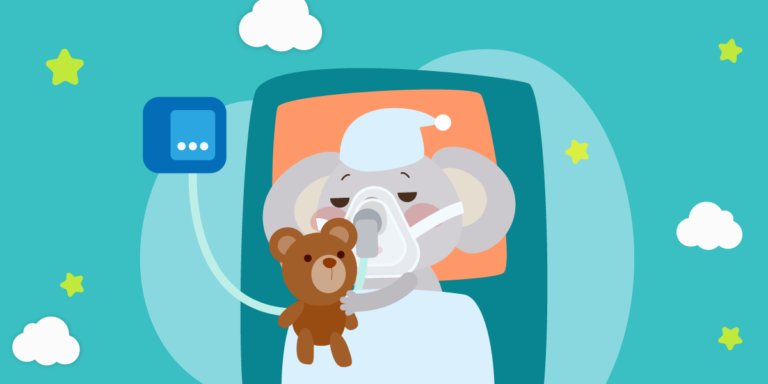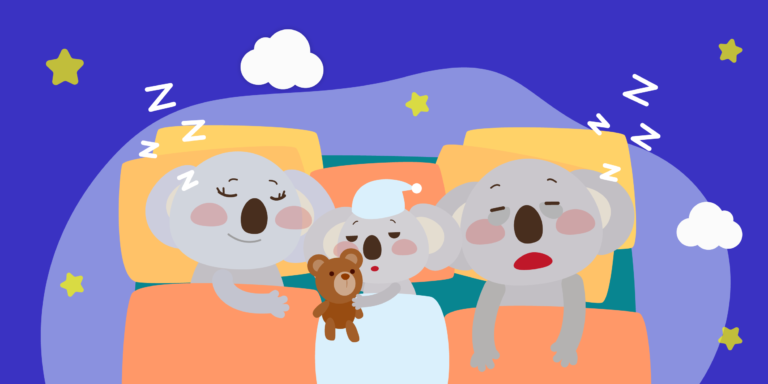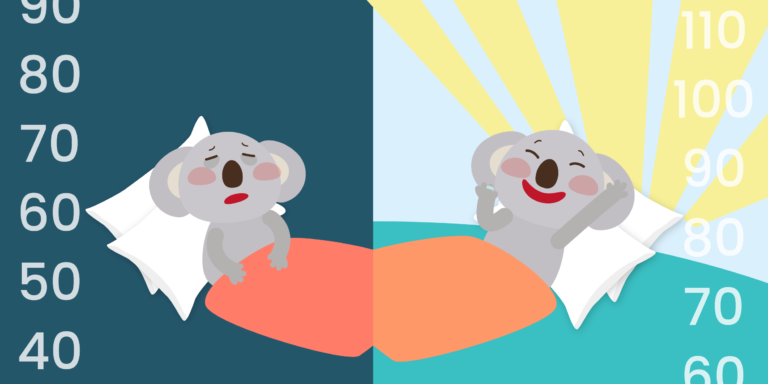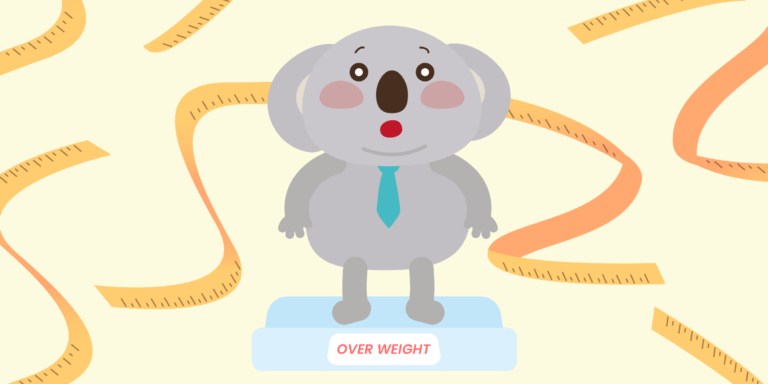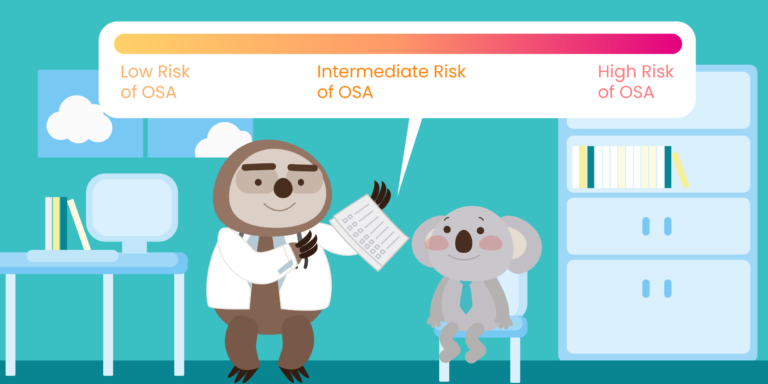Is Sleep Apnea Genetic?
You may know that some family members reportedly snore and feel tired every day. After some sleep tests, they were diagnosed with sleep apnea and may need further sleep apnea treatment. All of this may sound intriguing and scary at the same time, and you may be asking yourself “Should I be worried?” If one of your family members is experiencing the same symptoms, it may be time to get tested for sleep apnea because there’s a higher chance that you have sleep apnea too!
What is sleep apnea?
Sleep apnea is a sleeping disorder in which breathing is interrupted during sleep. Breathing may stop and start again several times during sleep, affecting the quality of deep sleep and making you feel tired when you wake up. You may also feel low on energy and irritable throughout the day. If these symptoms sound familiar, it’s time to learn about the different types of sleep apnea!
Different types of sleep apnea
- Obstructive sleep apnea: Also called OSA, it is considered the most common form of sleep apnea. During OSA episodes, the throat muscles relax, causing the airway to narrow or close when you breathe. This causes you to snore, gasp, snort or even choke during sleep.
- Central sleep apnea: CSA is physiologically related to brain activity. During sleep, the brain stem does not properly signal to the muscles that control breathing, to breathe. Breathing becomes slower and shallower during sleep.
- Complex sleep apnea: Occurs when a patient has both OSA and CSA. Some doctors also diagnose it as treatment-emergent central sleep apnea.
Is Sleep Apnea Hereditary?
Now, we come to the question of whether sleep apnea is hereditary, and the answer is that it depends on what type of sleep apnea you are diagnosed with. Let’s discuss the answer for each type of sleep apnea!
Is obstructive sleep apnea hereditary?
If your first-degree relatives, i.e. your parents or siblings, are diagnosed with sleep apnea, there is at least a 40% chance that you have obstructive sleep apnea too! This is due to the fact that hypoxemia or hypercapnia and craniofacial morphology, which are the possible causes of obstructive sleep apnea, are highly influenced by genetics.
Research estimates that heritability is 40% responsible for measures of sleep duration, as well as other sleep disorders such as insomnia (25-45%) and excessive daytime sleepiness (17%). (Respirology, 2018)
Although OSA cannot be officially linked to Mendelian inheritance patterns, research has proved that the interaction of genetics with various environmental factors can lead to obstructive sleep apnea.
Obstructive sleep apnea risk factors
The risk factors of obstructive sleep apnea could be just around the corner for your family members or even yourself. Anyone can have OSA, but the hereditary component of sleep apnea, paired with these particular factors can increase the risk of having sleep apnea:
- Obesity
- Older age
- Hypertension (high blood pressure)
- Allergies that cause chronic nasal congestion
- Narrowed airway or shorter midface length
- Larger tongue size compared with the rest of mouth area and throat
- Smoking
- Diabetes
- Being male
- Asthma
Is central sleep apnea hereditary?
To date, there is very little evidence that central sleep apnea is hereditary. However, if a patient has certain heart conditions, this may cause central sleep apnea and may have certain genetic factors to it.
Risk factors for central sleep apnea
Instead of CSA caused by hereditary factors, here are certain risk factors of CSA that you might need to be aware of:
- Getting older
- Being male
- Previously had a stroke episode
- Susceptible to congestive heart failure
- Have certain underlying heart issues
- Consume opioids medication
Warning signs and symptoms of sleep apnea
Sleep apnea signs and symptoms are easy to recognise. If you find that you or certain family members have certain risk factors for sleep apnea, it is time to check you are at risk based on some sleep apnea signs.
Adults’ warning signs and symptoms of sleep apnea
Snoring is definitely the most noticeable sleep apnea symptom, but there are also certain people who don’t snore and suffer from sleep apnea. Having sleep apnea can be recognised by the following symptoms:
- Snoring, gasping, or choking
- Waking up with a dry mouth
- Morning headaches
- Hypersomnia (excessive daytime sleepiness)
- Having difficulty staying asleep during the night
- Paused breathing during sleep
- Having difficulty concentrating
- Getting chest pain in the middle of the night
- Mood changes, like feeling depressed or irritated
- Diagnosed with high blood pressure
- Decreased libido
Is child sleep apnea hereditary?
You might be here because you suffer from sleep apnea yourself and are concerned that your child might also be at risk for developing it. Child sleep apnea is similar to adult sleep apnea. There are also two different types of sleep apnea in children: obstructive sleep apnea and central sleep apnea. In general, children can be affected by both types of sleep apnea, however, they are more likely to have OSA than CSA.
Risk factors for child sleep apnea

Different risk factors may cause both OSA and CSA in a child. As for OSA, there are certain factors that are very similar to adult sleep apnea, such as:
- Being obese
- Enlarged adenoids or tonsils
- Allergies
- Excessive nasal congestion (may be caused by allergies)
- Sedatives or consuming opioid medications
- Face or skull anomaly
Children may not inherit OSA directly from their parents, but children with certain congenital disorders, such as cerebral palsy, Down Syndrome, and Prader-Willi syndrome, which may be caused by genetic disorders, are also prone to having sleep apnea.
However, the main problem in children with OSA is not congenital disorders, but obesity. About 60% of obese children have OSA, and this number is expected to grow in the future.
As for CSA in children, studies have found that CSA in children is rare. CSA in children often occurs in children who have underlying neurological disorders in children, such as:
- Down syndrome
- Prader-Willi syndrome
- Ganglioglioma
- Arnold-Chiari malformation
- Other genetic diseases (to be researched further)
Child's warning signs and symptoms of sleep apnea

As a parent who has sleep apnea or has family members who have sleep apnea, you may need to assess the sleep apnea symptoms your child displays early on. Some child sleep apnea symptoms are similar to those of adult sleep apnea, but there is a significant difference between them. Some similar sleep apnea symptoms include:
- Snoring
- Breathing stops during sleep
- Coughing, choking, or snoring
- Mouth breathing
- Nighttime sweating
Children with OSA do not always snore, but they tend to have sleep disturbances, sometimes wet the bed and report having nightmares. During the day, children may not feel tired, but they may exhibit certain behavioral issues that adults may observe, such as:
- Have a harder time paying attention in the class
- Perform poorly in school
- Always tired in the morning before school
- Have certain learning problems
- Have certain behavioral problems
- May not gain weight normally
- May be hyperactive
Is infant sleep apnea hereditary?
What if I have an infant and I suffer from sleep apnea? Do I need to worry about my infant inheriting my sleep apnea? As mentioned earlier, there is a 40% chance that a person will have sleep apnea if a first-degree family member has the condition. Therefore, it is important to check whether your infant shows certain indicators of sleep apnea at birth. If the baby was born full-term, there is less need to worry about the child developing sleep apnea at a young age.
Infant sleep apnea usually has two common causes. One is developmental problems caused by an immature brain stem after premature birth. The other cause is more likely due to a medical condition they are born with.
Infant’s warning signs and symptoms of sleep apnea
Premature infants are at greater risk of having sleep apnea. Therefore, if you have premature babies, it is very important to watch for these signs and symptoms of infant sleep apnea:
- Have certain heart problems, for example, low oxygen saturation or slow heartbeat
- Has prolonged pauses that last 20 seconds or longer during breathing
- Has patterns of repeated breathing pauses lasting less than 20 seconds
- May have certain health problems
Risk factors for infant sleep apnea
Obstructive sleep apnea may have certain hereditary traits that can be observed in children or adults, but rarely occurs in infants born on larger preterm or full-term.
It occurs in 84% of infants who weigh less than 2.2 pounds in the first month, and the risk decreases to 25% in infants who weigh less than 5.5 points in the first month.
For premature babies, signs and symptoms might appear between the second and seventh day after birth, and certain medical conditions normally cause or exacerbate infant sleep apnea. Some of the underlying medical disorders are:
- Anemia
- Acid reflux
- Lung disease
- Infection
- Metabolic disorders
- Neurological problems
- Seizures
- Small upper airway
The use of medications and anesthesia may increase the risk of sleep apnea in infants. There is a small percentage of infants who died of sudden infant death syndrome (SIDS) who displayed apneic symptoms before death, but sleep apnea is not currently recognized as a risk factor for SIDS.
Diagnosing sleep apnea
Knowing that you may be at risk of having sleep apnea after looking at the possibility of inheriting it or through symptoms is not sufficient. A medical diagnosis is the next step before getting the right treatment for sleep apnea.
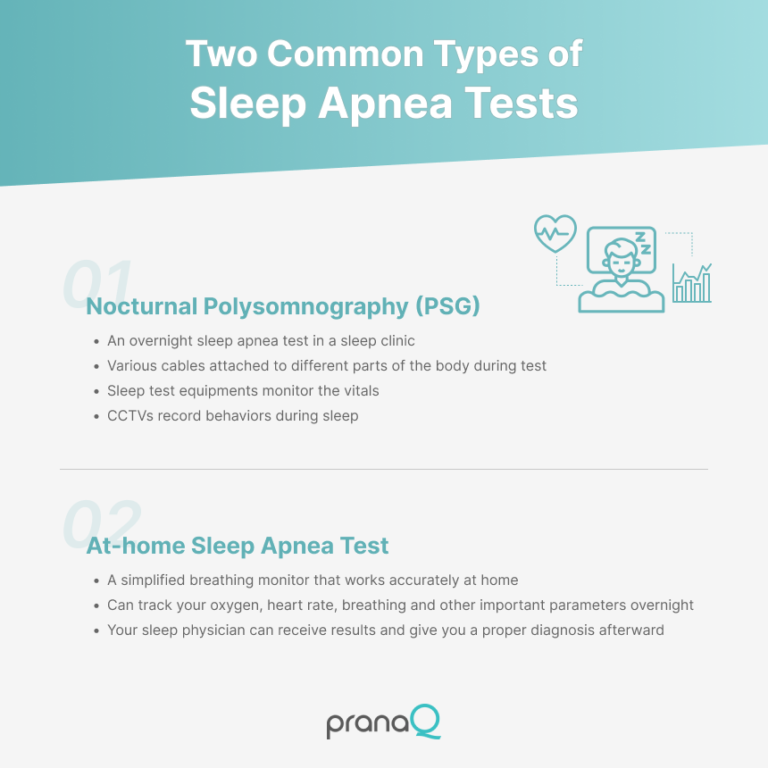
How to diagnose an adult’s sleep apnea?
As an adult, it is especially important that you be diagnosed with sleep apnea because you may have moderate to severe sleep apnea. There are two common types of sleep apnea tests you can take:
- Nocturnal polysomnography (PSG): PSG requires a patient to visit a sleep clinic and undergo an overnight sleep apnea test. There, various wires are attached to different parts of the body and sleep testing equipment is used to monitor breathing patterns, brain activity, heart rate, blood oxygen levels, lung activity, and arm and leg movements during sleep. In certain facilities, small CCTVs record certain behaviors during sleep.
- At-home sleep apnea tests: There is a simplified breathing monitor that works fairly accurately that you can take home to be tested overnight. With a sleep test at home, you can track your oxygen levels, heart rate, breathing, and other important health parameters overnight, for several nights, or even for a week. The results are received by your sleep physician who can then provide an accurate diagnosis of sleep apnea.
How to diagnose a child’s sleep apnea?
Children may get diagnosed with sleep apnea through both PSG or at-home sleep apnea tests. However, at-home sleep apnea testing is becoming more popular to diagnose sleep apnea in children because it reduces the stress of having to sleep in a new environment with many wires attached to almost all parts of the body.
At-home sleep apnea tests ensure children receive a more accurate sleep apnea test result by observing their normal sleeping behavior in their own bedrooms. Children who already have disrupted sleep won’t feel uncomfortable as at-home sleep apnea tests are usually smaller and more versatile compared to PSG.
How to diagnose an infant’s sleep apnea?
Unlike child sleep apnea, the diagnosis of sleep apnea in infants is somewhat more complex. Most infants at risk of having sleep apnea are premature babies or infants currently in the neonatal intensive care (NICU).
The best way to get the most accurate sleep tracking results will be polysomnography at a sleep center. Some sleep centers specialize in child sleep disorders and can help review your infants’ sleep history and symptoms before bringing them in for a polysomnography exam. The sleep exam not only tests for sleep apnea, but other conditions that may be occurring, such as:
- Another sleep disorder
- Another medical condition
- Any mental disorder
A sleep doctor needs to know any underlying health problems or complications that occurred during the infant’s birth in order to make a more accurate infant sleep apnea diagnosis for the baby.

Getting an at-home sleep apnea test for your loved ones right now!
Now that you know you or certain family members such as your siblings, parents, or even your child, may be at risk of having sleep apnea, it’s time to get tested! The symptoms of sleep apnea may always be present or obvious. Do not worry too much as it’s easy to get tested in the comfort of your own house and get the reassurance you deserve!
With PranaQ’s TipTraQ, sleep apnea diagnosis is at the tips of your fingers and you can receive your sleep diagnosis instantly. Sleep apnea is scary, but with PranaQ it doesn’t have to be.
Find out more about PranaQ through our Facebook, Instagram, and LinkedIn!
References:
- https://www.mayoclinic.org/diseases-conditions/obstructive-sleep-apnea/symptoms-causes/syc-20352090
- https://www.sleepfoundation.org/sleep-apnea/is-sleep-apnea-genetic
- https://www.healthline.com/health/is-sleep-apnea-hereditary#seeking-medical-help
- https://medlineplus.gov/genetics/condition/obstructive-sleep-apnea/#resources
- https://sleepeducation.org/sleep-disorders/infant-sleep-apnea/
- https://www.mayoclinic.org/diseases-conditions/pediatric-sleep-apnea/symptoms-causes/syc-20376196#:~:text=Pediatric%20obstructive%20sleep%20apnea%20is,apnea%20and%20adult%20sleep%20apnea.
- https://www.ncbi.nlm.nih.gov/pmc/articles/PMC7308164/pdf/nihms-1592141.pdf
- https://enticare.com/2021/08/31/is-sleep-apnea-hereditary/
- https://www.mdpi.com/2227-9067/9/3/306/htm
- https://news.childrensmercy.org/sleep-apnea-in-babies/#:~:text=Is%20sleep%20apnea%20life%2Dthreatening,affect%20functioning%20during%20the%20day.


